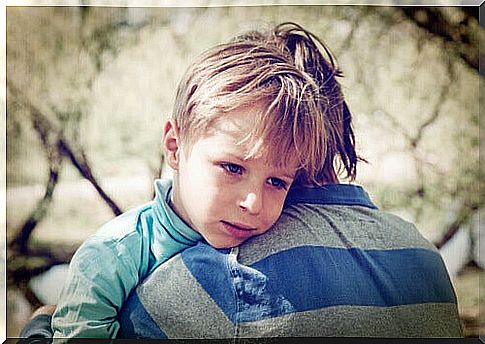Calimero Syndrome: Complaint As A Way Of Being

We all know these people who express complaints on a daily basis. Nothing seems fair to them and everything bothers them. After reading these lines, surely you have someone in mind. The psychoanalyst Saverio Tomasella talks about it in his book Le Syndrome de Calimero . So he’s referring to that cranky chick with the broken shell on her head. Although he uses a comedic wink in his explanations, the content of this book is very serious.
For the author, the substance of all complaints is framed in a context. A very sensitive socio-economic situation associated with a very difficult life history. This is the trigger for complaints. In fact, he states that behind these complaints usually lies real suffering, an emotional claim that has been repeatedly overlooked.
Thus, many people can be particularly irritating to those close to them. Their tendency to see everything in black shows an irreducible pessimism. However, there are also other cases where complaints are a constant need for attention which can be difficult to manage.

Calimero syndrome
Calimero syndrome is a contemporary phenomenon in a society on the brink of implosion. According to Tomasella, “ The injustices are more and more evident. There is a parallel to be drawn with the world that preceded the Revolution of 1789. ”
The privileges granted to some and the abuses are legion. Thus, these rigidities in society make many people feel injustice and the need to complain.
Complaints that hide something worse
Most of the time, those who complain a lot have experienced real injustices and fear being victimized again. For example, some “calimeros” may have experienced deep shame, humiliation, feelings of rejection and abandonment.
Serious genealogical traumas (inheritance problems, ruin, exile, economic migrations) can also mark a child, who will be in the position of spokesperson and will complain in a significant way on behalf of his family. Therefore, the complaints expressed generally cover much deeper issues than we realize.
Because yes, instead of speaking of a too intimate concern, the complaint is directed towards superficial questions like the delay of the train or the coffee too hot. In this way, a hidden expression of pain or shame is linked to something benign and everyday that can be expressed freely and publicly without social or emotional consequences. However, these are always complaints that, repeated over and over again, weaken the patience of others.
When the complaint becomes a way to be and to create a bond
If the complaint is one-off, it is generally positive because it attracts attention. It can be a way to change a situation when there is a problem at work, in a relationship, in the family. However, there are people who repeatedly feel sorry for their fate.
We become a “calimero” when we make complaints into a monologue and a general pattern of relationship with others.
Most of these people need to be heard so that their suffering is recognized. In others, there is a form of laziness which consists in letting the situation spoil in order to keep complaining. And finally, there is a minority who are simply seeking attention.
Better not to laugh at the complaint
A child, a teenager or even an adult who has not been heard when he has suffered an injustice will surely begin a process of repeating his complaint. What happens is that when the pain and the complaint are mocked, a new injustice occurs.
Complaints like exhaustion and a cry for help
There are those who complain all the time about being the star and who are in constant theatricalization. It is a way of dominating others and the situation. These people could also be called “calimeros”, but in reality their shell is not broken. Therefore, we have to be smart to detect them.
However, with most of those who complain a lot, there is something that is really broken and destroyed. They also don’t know how to move forward or how to rebuild themselves. For this reason, we have to be patient with them as they don’t really seek to harm us, although they can tire us out.
This attitude often stems from a childhood injury that was not noticed by the family. Basically these people don’t say “ take care of me ” but “ listen to me ”. Caught in their complaints, they need to be heard, to show how much they are suffering.

Calimero syndrome: there is a solution to calls for help
Empathy is necessary because many have experienced real and objective injustice. So if the other person feels respected and listened to, they can move forward.
For those who don’t want to explore their past and delve into their family history, you can start with regular physical activity or meditation, which will help reduce tension. So, little by little, you can prepare yourself for a therapeutic profession.
It is possible to turn complaints into an emotional expression, as well as to change the contingencies that reinforce them and prevent them from moving forward. Therefore, you need to listen to the story behind the complaint, dig deeper, and dig deeper.










